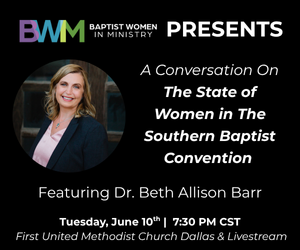• The Explore the Bible Lesson for Aug. 9 focuses on Proverbs 29:1-3, 12-20.
Simply going verse by verse through the assigned passage in this lesson will feel disjointed. Thankfully, its different sayings can be grouped together under a few broad thematic headings that cover the different texts from today’s passage, albeit in no particular pattern or order.
Consequences of Foolishness
Foolishness—which includes moral failing, not simply a lack of wisdom—inevitably brings destruction. Although it may seem rewarding at first, foolishness never pays off in the end. Our passage reminds us repeatedly of this painful truth.
The very first verse puts the matter bluntly: “Whoever remains stiff-necked after many rebukes will suddenly be destroyed—without remedy” (29:1). No one can accuse the author of beating around the bush or mincing words in this verse. The latter half of verse 3 also elaborates upon the consequences of foolishness using a particular case study—prostitution—saying, “a companion of prostitutes squanders his wealth” (29:3).
Jumping ahead, we see a contrast in verse 18. “Where there is no revelation, people cast off restraint; but blessed is the one who heeds wisdom’s instruction” (29:18). In other words, those who do not recognize or accept God’s self-revelation will inevitably live whatever way they wish. By contrast, those who do recognize and accept God’s self-revelation—particularly as it is manifested through divine wisdom—will enjoy God’s blessing.
Verse 20, however, adds an interesting twist: “Do you see someone who speaks in haste? There is more hope for a fool than for them” (29:20). This verse warns against speaking without thinking, but rather than label such a person as a fool, the text says that they are worse than a fool. We find a similar sentiment echoed in James 3:1-12, which gives a lengthy warning against the dangers of how we speak, saying that “no human being can tame the tongue. It is a restless evil, full of deadly poison” (3:8).
Righteous Leadership
Proverbs 29 also includes various verses which extol righteous leadership while condemning wicked leadership. Verse 2 states this contrast: people rejoice when the righteous are in charge, but people “groan” when the wicked are in charge (29:2). Latter verses proceed to unpack this idea in various ways.
Verse 12 says, “If a ruler listens to lies, all his officials become wicked” (29:12). This warning is particularly poignant in our contemporary age of “alternative facts” and “fake news.” Misinformation and conspiracy theories spread like wildfire, and it is vitally necessary for our rulers to exercise discernment and cut through the lies in search of truth. Convenient lies and half-truths may boost poll numbers and win elections in the short term, but they inevitably wreak damage both on the rulers’ subjects and on the ruler’s own soul.
Verse 14 puts forward an ideal to which rulers should aspire: “If a king judges the poor with fairness, his throne will be established forever” (29:14). This verse alone serves as a direct challenge to many—perhaps most—of the world’s civic authorities over the millennia. The truth is, “money talks.” Those in power typically favor those who have wealth, and wealth serves to uphold power.
Sign up for our weekly edition and get all our headlines in your inbox on Thursdays
It’s only natural for rulers to favor the rich and neglect the poor. The poor have little to offer rulers, materially speaking. The blue-collar worker can’t line the pockets of the politician the way the hedge fund manager can. But Proverbs 29:14 presents an alternative vision: the righteous ruler with treat the poor with compassion and justice. There will be no favoritism shown to the rich or abuse levelled at the poor.
Discipline
Verses 15, 17, and 19 speak of discipline and its effect in cultivating wisdom among those being disciplined. It is important to understand discipline is not simply corporal punishment, although that is often the predominant image many of us associate with the word “discipline,” in no small part because of the language in verse 15, “A rod and a reprimand impart wisdom” (29:15).
Discipline, of course, can refer to any number of corrective measures taken to address and change unwanted behavior. Discipline does not necessarily always mean “punishment.”
Why is discipline so important? We often would like people under our authority to simply “act right” and do what we ask them. Unfortunately, especially for children who are still growing and learning, this simply doesn’t happen. Note that even Jesus, though he was not at all a rebellious or disobedient child, still had to grow “in wisdom and stature” during his childhood (Luke 2:52).
How much more do regular, sinful children need to endure the process of growth? Discipline fosters growth and cultivates wisdom, when done correctly. Proverbs encourages those with authority, particularly parents, to exercise discipline not as a way to be harsh and “let off steam,” but as a way to help those under their care.
Joshua Sharp is a writer and Bible teacher living in Waco. He holds a Master of Divinity degree from Truett Theological Seminary.
















We seek to connect God’s story and God’s people around the world. To learn more about God’s story, click here.
Send comments and feedback to Eric Black, our editor. For comments to be published, please specify “letter to the editor.” Maximum length for publication is 300 words.